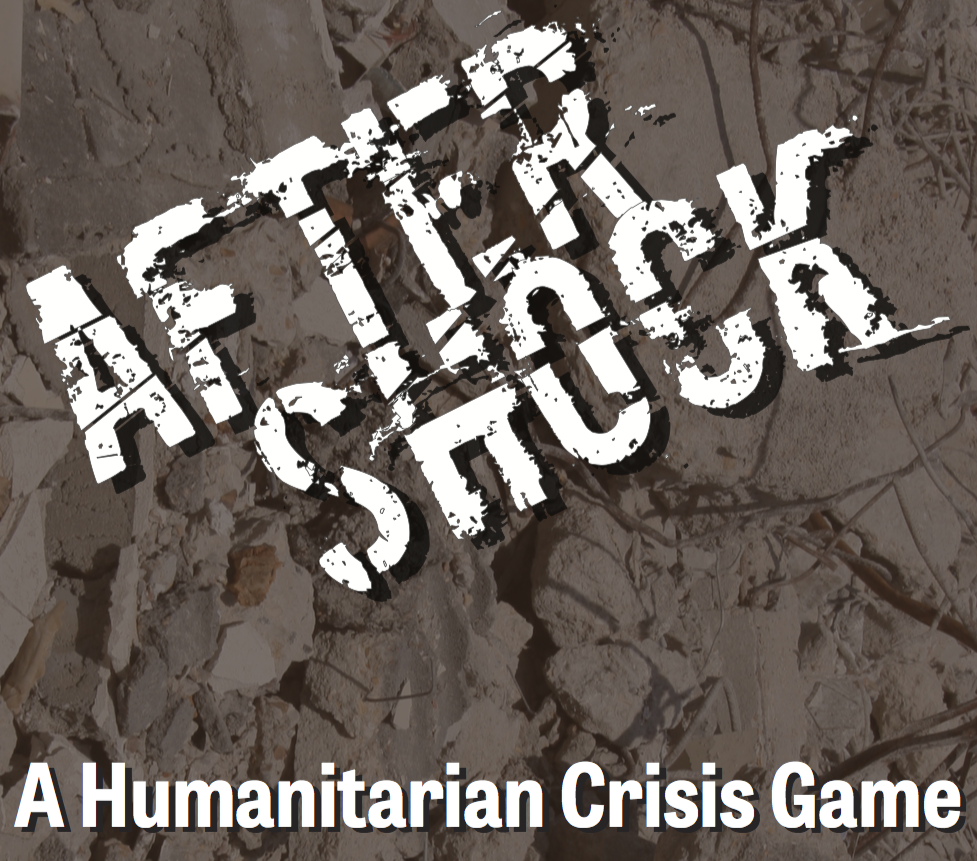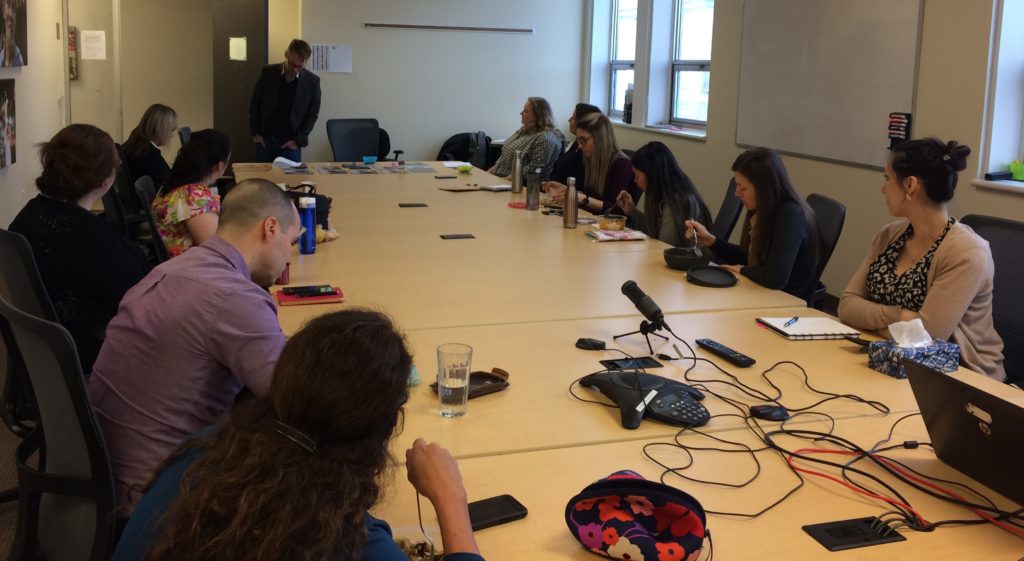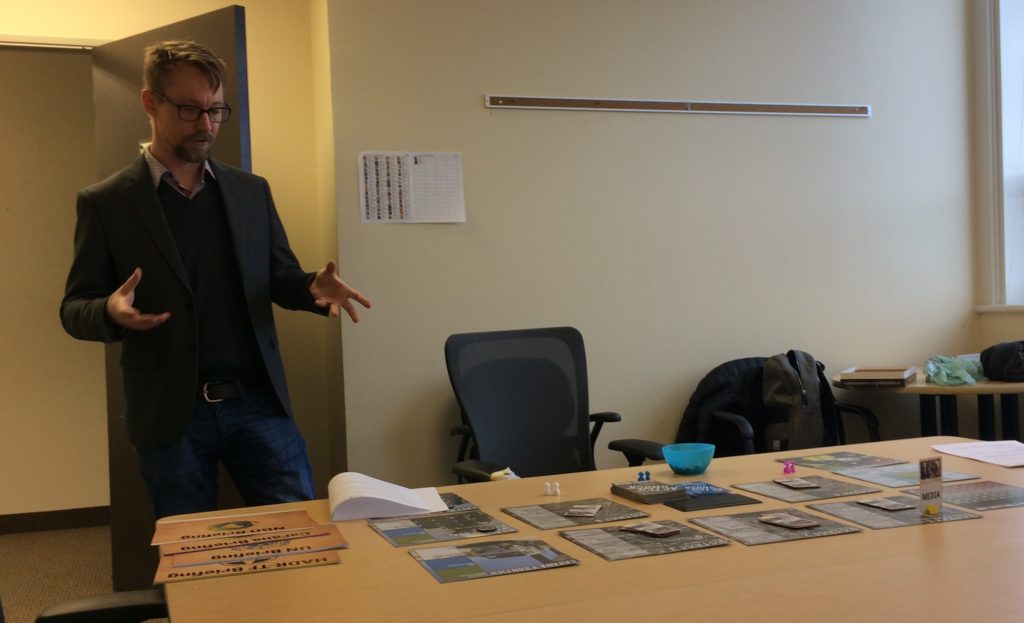I was recently invited in to facilitate a lunch-and-learn event at CUSO in Ottawa, Canada, to demonstrate how serious games can be applied to humanitarian learning.

Given that the session was scheduled for only an hour, I elected to present AFTERSHOCK, an excellent learning game developed by Prof. Rex Brynen (McGill/PAXsims.org) and Tom Fisher (Imaginetic).
AFTERSHOCK participants are responsible for responding to a devastating (fictional) earthquake in capital of the (fictional) lower-income state of Carana. It is designed for 1 to 4 participants who take on the role of the local government, military disaster relief teams, the assembled United Nations agencies, and international non-governmental (INGO) actors.

Modeled after the response to the 2010 earthquake in Haiti, AFTERSHOCK does a great job of teaching players about the logistical challenges of delivering aid in a context of extensive infrastructural damage. Can you justify repairing the airport in the days after the disaster, even if it means diverting time and supplies away from people in need? Are your limited teams better put to use carrying out emergency operations, or should you be sending a delegate to the coordination meeting? And, of course, if the reputation of your organization suffers, what will you do to repair your good name (and keep the donor dollars flowing)?

The CUSO team quickly fell into their roles, debating about how and where supplies should be routed and making difficult decisions about what could realistically be achieved in the days after the crisis.
AFTERSHOCK is designed to run for 2 hours, not including a briefing–so in our time span we were only able to run through two introductory rounds. I was a bit unsure how much the group would be able to take away in such a short time, but they extracted many of the learning points that the PAXsims team built into the exercise and were excited for more. The session was a great demonstration of how much a group can learn quickly using interactive methods.

If you would like a copy of the learning game, AFTERSHOCK can be purchased from The Game Crafter. Proceeds go to the World Food Program. They currently have one expansion package which introduces gender to the mechanics of the exercise, and are in the process of planning two more expansions. This will include mechanics to “link” together four separate instances of the learning game (representing four different municipalities in the country) under the umbrella of a national government. Sounds exciting to all of us here at LLST!
Many thanks to CUSO for inviting me in, and to Rex for giving me permission to share his work with the CUSO team.
If you are interested in arranging a similar demo session at your organization, get in touch at info@llst.ca.
